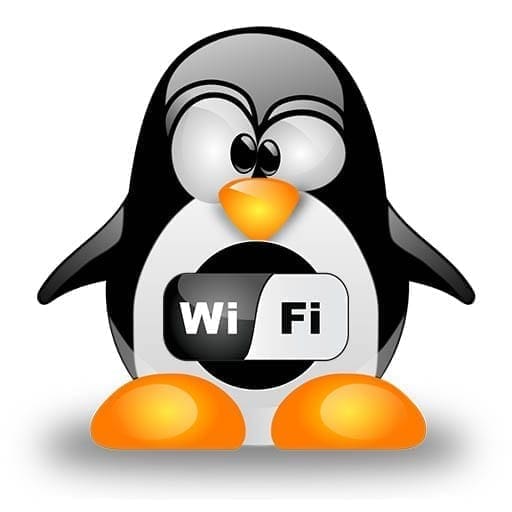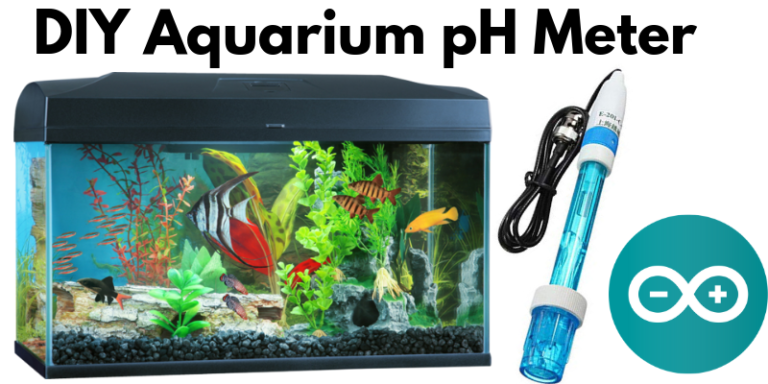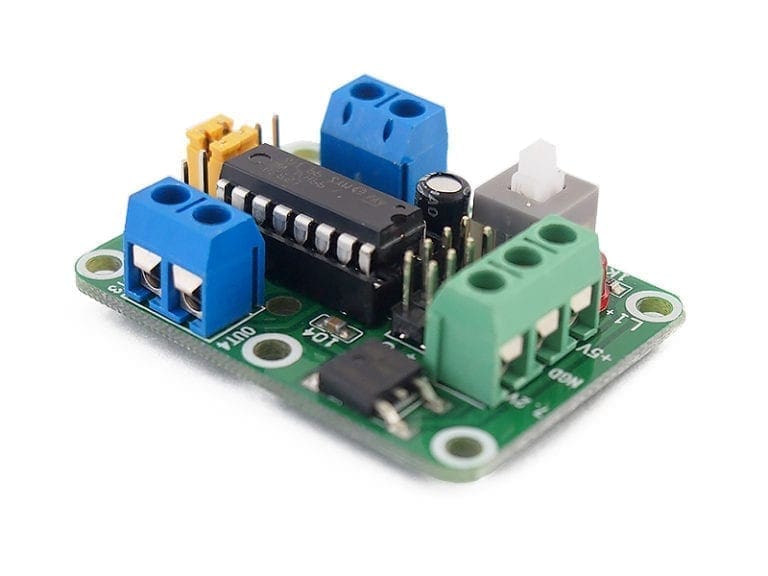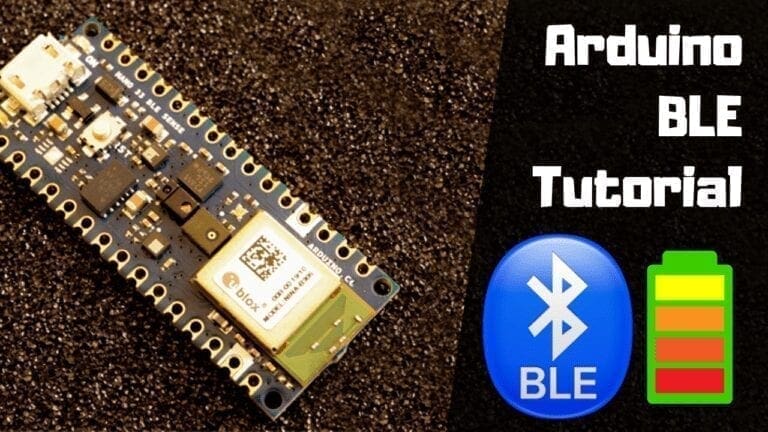Acing Your Junior Networking Engineer Interview 2024: Insights from an Experienced Engineer
As you embark on your journey to land that coveted Junior Networking Engineer position, it’s crucial to come prepared for the technical interview. Having sat on both sides of the table, I’ve gathered a wealth of insights and anecdotes that I believe can help you navigate this crucial phase. Let’s dive into the top questions you might face, the ideal answers, and what your interviewers are looking for with each query.

What we are Looking for a Junior Network Engineer?
As an experienced network engineer, when I’m on the lookout for a new addition to our team, particularly for a junior networking engineer position, there are several key qualities and skills I expect from a candidate. It’s not just about technical proficiency—though that’s certainly important—it’s also about the candidate’s approach to problem-solving, their ability to learn and adapt, and how they fit into the team dynamic. Here’s what I typically look for:
1. Technical Knowledge and Skills
- Fundamental Understanding: A solid grasp of networking fundamentals, such as the OSI model, TCP/IP protocols, subnetting, and an understanding of common networking hardware (routers, switches, firewalls, etc.). This forms the backbone of their skill set.
- Protocols Proficiency: Knowledge of key networking protocols like HTTP, HTTPS, FTP, DNS, DHCP, and more advanced protocols depending on the role.
- Troubleshooting Skills: The ability to methodically troubleshoot networking issues is crucial. I look for candidates who can describe their process for diagnosing and resolving common network problems.
2. Eagerness to Learn
- Continuous Learning: The networking field is constantly evolving, with new technologies and protocols emerging. I value candidates who demonstrate a commitment to continuous learning and professional development.
- Adaptability: The ability to adapt to new technologies, tools, and methodologies is critical. I appreciate candidates who are open to change and eager to experiment with new solutions.
3. Problem-solving Abilities
- Analytical Thinking: Networking often involves complex problem-solving. I expect candidates to approach problems analytically, breaking down issues into manageable parts to find a solution.
- Creativity: Sometimes, out-of-the-box thinking is needed to resolve network issues. Creativity in crafting solutions can be a valuable asset.

4. Communication and Teamwork
- Clear Communication: The ability to clearly and effectively communicate ideas, issues, and solutions is essential, both in writing and verbally. Networking issues often need to be explained to non-technical stakeholders.
- Team Collaboration: Networking projects usually involve collaboration with other IT professionals. I look for individuals who can work well in a team, respecting and contributing to the collective effort.
5. Professionalism and Work Ethic
- Responsibility: Taking ownership of tasks and responsibilities, meeting deadlines, and following through on commitments.
- Ethical Practice: Adhering to professional and ethical standards, particularly when handling sensitive data or managing network security.
6. Practical Experience
- Hands-on Experience: While not always possible for junior roles, any hands-on experience through internships, lab work, or personal projects is highly beneficial. It demonstrates initiative and a practical application of their skills.
- Certifications: Certifications like CCNA (Cisco Certified Network Associate) or CompTIA Network+ can also indicate a candidate’s dedication to their career in networking, though I don’t consider them mandatory. They can, however, provide a structured learning path and validate technical knowledge.
7. Personal Attributes
- Curiosity: A natural curiosity about how things work and a passion for technology can drive continuous improvement and innovation.
- Resilience: The ability to handle pressure and setbacks, learning from failures without becoming discouraged. Networking environments can be high-stakes and demanding, requiring a level-headed approach.
In essence, while technical skills form the foundation of a good junior networking engineer, it’s the combination of soft skills, a proactive learning attitude, and the ability to integrate into and contribute to a team that truly makes a candidate stand out. These are the qualities that suggest not just a competent technician, but a valuable long-term member of the team.
Top 10 Questions for a Junior Network Engineer
Question: Can you explain the difference between TCP and UDP?
The Ideal Answer
You’d want to say something like, “TCP is a connection-oriented protocol ensuring reliable data delivery, while UDP is connectionless, sacrificing reliability for speed. TCP is like making a phone call where you establish a connection, whereas UDP is akin to sending a letter without knowing if it arrives.”
What It Evaluates
This question tests your grasp of foundational networking protocols. It’s not just about reciting definitions; it’s about understanding their practical implications. I once had a candidate who explained TCP and UDP using a pizza delivery analogy, which not only showed their understanding but also their ability to communicate complex ideas simply.
IP Addressing and Subnetting
Question: What is a subnet, and why is it used?
The Ideal Answer
“A subnet, or subnetwork, divides a larger network into smaller, manageable parts, improving performance, security, and IP address management. It’s like organizing a library into sections to find books faster.”
What It Evaluates
Subnetting is a day-to-day task for networking engineers, and this question assesses your technical knowledge and your foresight in network design and optimization.
Distinguishing Network Devices
Question: How does a router differ from a switch?
The Ideal Answer
“Routers connect different networks and make decisions based on IP addresses, while switches connect devices within the same network using MAC addresses. It’s the difference between a postal service sorting mail to different cities (router) and the mailman delivering mail within a city (switch).”
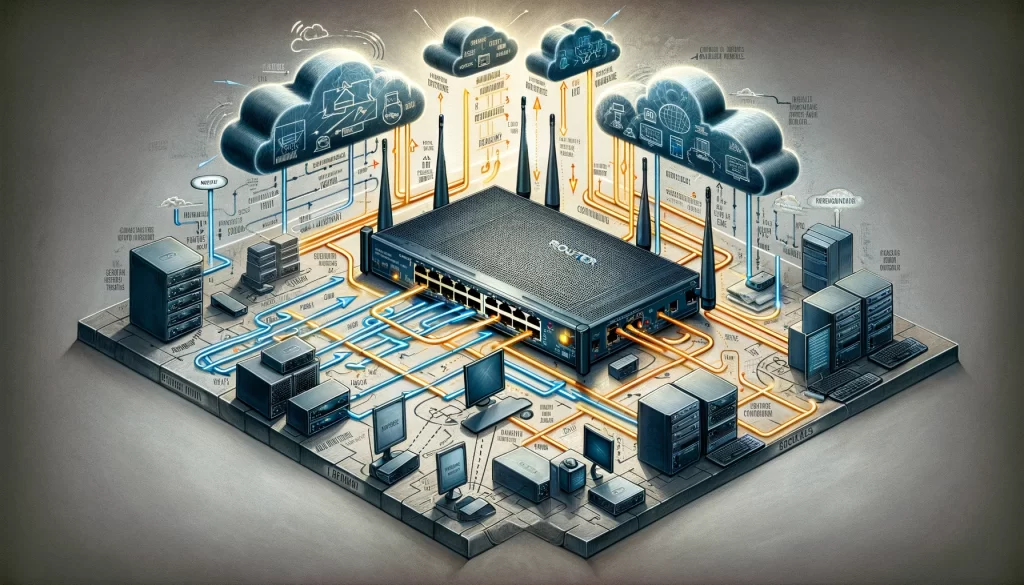
What It Evaluates
Understanding the function of network devices is key. This shows you know how to set up and manage a network’s infrastructure.
The Web Browsing Process
Question: Describe what happens when you type a website’s URL into a browser and press Enter.
The Ideal Answer
Start with DNS resolution, then move to HTTP request, TCP for transmission, and how the web server responds. “It’s like looking up a store’s address (DNS), driving there (TCP), and asking for a specific item (HTTP request).”
What It Evaluates
This question gauges your understanding of the end-to-end process of web communication. An accurate answer reflects a solid grasp of how different protocols interact in common tasks.
Network Segmentation with VLANs
Question: What is a VLAN and what are its benefits?
The Ideal Answer
“VLANs segment a physical network into logical sections for improved security and management. It’s similar to dividing an open-plan office into departments for better efficiency.”
What It Evaluates
VLANs are crucial for managing large networks. This question tests your knowledge of network segmentation and its benefits, highlighting planning and security considerations.
Addressing NAT
Question: Explain the purpose and process of NAT.
The Ideal Answer
“NAT translates private IP addresses to a public one, conserving addresses and enhancing security by hiding internal network details. It’s like having a single phone number for a company’s external calls, despite many internal lines.”
What It Evaluates
NAT is essential for connecting private networks to the internet. This shows your understanding of network security and IP address management.
The OSI Model
Question: What are the OSI Model layers, and can you explain what each layer does?
The Ideal Answer
Briefly describe each layer from Physical up to Application, focusing on their functions. “Think of it as assembling a car, from putting together the chassis (Physical) to painting and finishing (Application).”

What It Evaluates
This is about your foundational knowledge. Understanding the OSI model is critical for troubleshooting and network design.
Network Security Essentials
Question: How do you secure a network?
The Ideal Answer
Talk about firewalls, encryption, secure protocols, and regular updates. “Securing a network is like securing a house; you need locks (firewalls), curtains (encryption), and to change locks regularly (updates).”
What It Evaluates
Security is a top concern, and this question assesses your awareness and proactive approach to protecting network resources.
Problem-Solving Skills
Question: Describe a challenging networking issue you’ve encountered and how you resolved it.
The Ideal Answer
Share a specific story, focusing on the problem, your troubleshooting process, and the solution. Make it relatable but technical.
What It Evaluates
This evaluates your problem-solving skills, technical knowledge, and experience. It’s not just about the issue but how you approach problems, think critically, and communicate your process. For instance, I once dealt with a persistent network bottleneck that was hard to pinpoint. By systematically isolating segments and monitoring traffic, I discovered a misconfigured QoS setting on a router. It was a lesson in both the importance of precise configuration and methodical troubleshooting.
Keeping Up-to-Date
Question: How do you stay updated with the latest in networking technology and protocols?
The Ideal Answer
Mention specific resources like industry blogs, forums, webinars, and hands-on experimentation. “I follow “this and this”, participate in forums, and set up lab scenarios to test new technologies. It’s like being a chef who experiments with new recipes to stay ahead.”
What It Evaluates
This question assesses your commitment to continuous learning and professional development. The field of networking is ever-evolving, and staying informed is crucial for success. Your ability to keep up-to-date can also indicate your passion for the field, a quality every employer values.
Wrapping Up: The Big Picture
Interviewing for a Junior Networking Engineer position is as much about showcasing your technical expertise as it is about demonstrating your problem-solving abilities, your capacity for continuous learning, and your communication skills. Remember, every question is an opportunity to highlight not just what you know, but how you apply it, how you overcome challenges, and how you grow.
Throughout my career, I’ve found that the most successful candidates are those who can relate their technical knowledge to real-world scenarios, who show curiosity and a willingness to learn, and who communicate effectively. So, as you prepare for your interview, think about your own experiences and how they illustrate your skills and attributes. And remember, it’s okay to share moments of failure or uncertainty as long as you can show what you learned from them.
Networking isn’t just about cables and protocols; it’s about connecting people and information as efficiently and securely as possible. Show your interviewer that you understand that, and you’ll be well on your way to securing that Junior Networking Engineer role. Good luck!

